U.S. Backs Honduran President’s Re-Election Despite Fraud Allegations
Despite the Trump administration's stand, the Organization of American States is calling for a new election.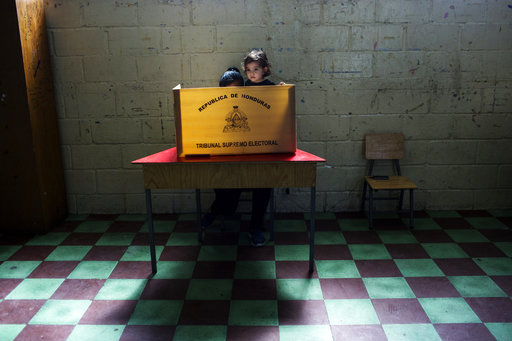 A Honduran woman, accompanied by her child, casts her vote in the city of Tegucigalpa during November's general elections. (Rodrigo Abd / AP)
A Honduran woman, accompanied by her child, casts her vote in the city of Tegucigalpa during November's general elections. (Rodrigo Abd / AP)
The United States on Friday backed the re-election of Honduran President Juan Orlando Hernández despite widespread concern about voter fraud in the Nov. 26 election. The State Department congratulated Hernández on his victory, though it also encouraged a review of any evidence of electoral fraud. The Organization of American States (OAS) has formally called for a new election.
Hernández’s victory was announced by the Honduran Electoral Commission, which is largely controlled by his allies, and sparked violent opposition protests in which more than 20 people died.
State Department spokeswoman Heather Nauert said, “The close election results, irregularities identified by the OAS and the EU election observation missions, and strong reactions from Hondurans across the political spectrum underscore the need for a robust national dialogue. A significant long-term effort to heal the political divide in the country and enact much-needed electoral reforms should be undertaken.”
The Guardian further reports:
The United States – which has no ambassador in the country or assistant secretary of state for the western hemisphere – appeared to throw its weight behind Hernández, but it held off formally congratulating him until the end of a five-day period in which the opposition could challenge the electoral body’s decision.
The decision came after [opposition candidate] Nasralla travelled to Washington DC to meet officials at the OAS and state department. US officials said that he did not present evidence to back up his allegations of fraud.
But analysts warn that in its attempt to maintain stability, the US could risk undermining its own interests.
Former CIA analyst Fulton Armstrong asserts that “over the short term, Hondurans are going to be upset and protest. Over the medium- and long-term they are going to withdraw from confidence in democracy and withdraw from confidence in a U.S. commitment to democracy. Their trust will drop even further in their government. The U.S. is sacrificing support of the Honduran people and almost everything the U.S. represents—democracy, anti-corruption—for what it thinks is stability. But how can you have stability without democracy?”
Truthdig columnist Sonali Kolhatkar notes that Hernández’s election could be seen as advantageous by the Trump administration:
Hernández has acted like a “pseudo-dictator” and a “ ‘yes-man’ to the United States.” It is tragically ironic that the U.S.-backed leadership in Honduras is the one directly linked to drug smuggling, repression and violence, while the Trump administration targets ordinary Honduran immigrants and refugees fleeing the post-coup regime, even unfairly labeling them as narcotraffickers and murderous gang members.
Also ironic is the fact that Hernández decided to run for a second term, even though [former Honduran president] Zelaya’s attempt to legalize running for a second term in office via a national referendum was used, in part, to justify the 2009 coup against him. The Honduran Constitution forbade an incumbent from seeking re-election—until 2015, when the nation’s Supreme Court overturned that law. [Honduras expert and Pitzer College assistant professor Suyapa] Portillo contextualized that decision, telling me that Hernández has engaged in rampant nepotism. “He has his entire family in his cabinet, very similar to what Trump is doing in the United States,” she said. “We call that an ‘oligarchy’ in Latin America, by the way.” Hernández’s government has faced so many accusations of corruption that the Organization of American States eventually forced him to give in to oversight via an anti-corruption panel made up of non-Honduran prosecutors.
The OAS’ call for a re-election, which asserts that both the vote and the recount are unreliable, has been rejected by the Honduran government. Gerardo Torres, the international coordinator of the Opposition Alliance Against the Dictatorship, spoke to The Real News about his firsthand account of election fraud concern:
In Honduras we used to have ballots closed about 4 p.m and then we have result by 7 p.m. When the ballots closed at 4, but at 7, 9, 10 p.m. we didn’t have results, we knew that something was wrong. At 1:00 in the morning of Monday the tribunal was forced to say that Nasralla, who was our candidate, was winning by five points with more than half of the precincts and ballots counted. Then we start celebrating, of course, because we knew that that was a tendency that would unlikely change. And it could change just by some one or two points. That had been the tradition of our elections.
The thing is that the next morning by 3 a.m. the system had fallen and they had shut it down. And there were 10 hours without the system being uploaded. When it came back we saw that the tendency started changing against even mathematical logic.
Nasralla, who was our candidate, started losing votes and President Hernández started gaining votes. In some of the precincts with 120% higher than the historical participation rate. And by Wednesday, Hernández had tied with Nasralla and was ahead of him in one point.
Torres said that after this, protests and barricades began, and that “we have seen proof of fraud in every part of the electoral process.”
Truthdig assistant editor Emma Niles called attention to an open letter signed by 252 professors and scholars, urging the U.S. embassy in Honduras “to call for a full and independent investigation into the irregularities that occurred before, during, and after the elections.”
Your support matters…Independent journalism is under threat and overshadowed by heavily funded mainstream media.
You can help level the playing field. Become a member.
Your tax-deductible contribution keeps us digging beneath the headlines to give you thought-provoking, investigative reporting and analysis that unearths what's really happening- without compromise.
Give today to support our courageous, independent journalists.
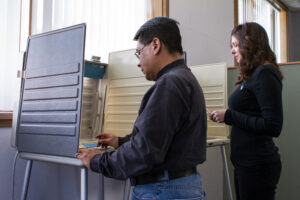
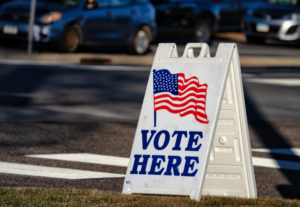
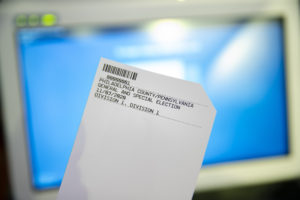
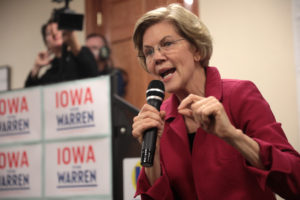
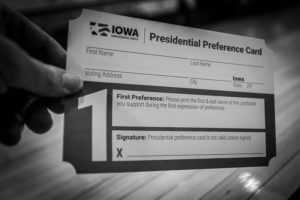
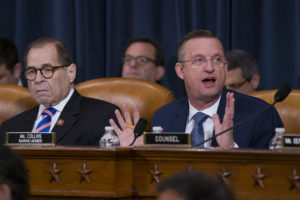
You need to be a supporter to comment.
There are currently no responses to this article.
Be the first to respond.